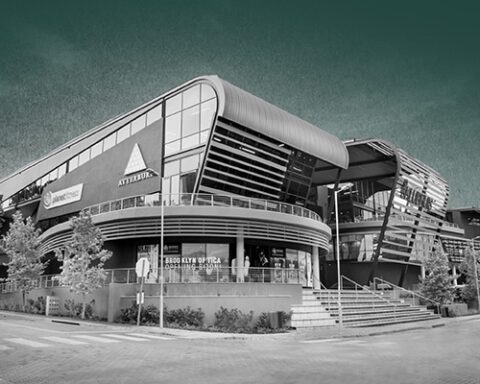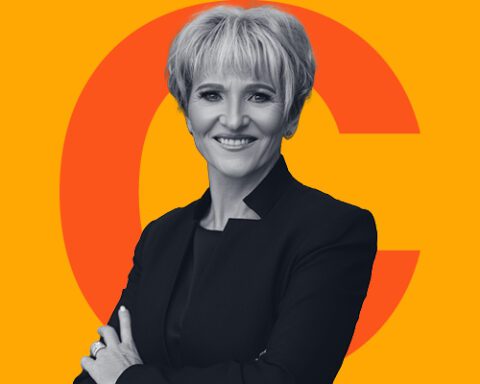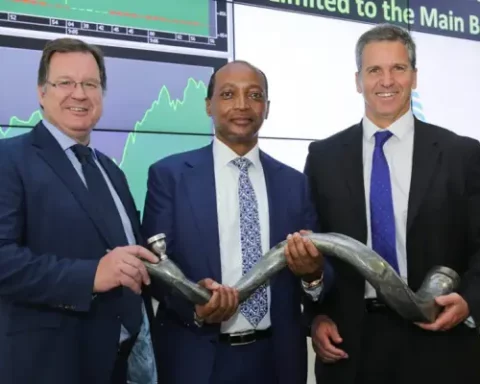Spar may have overhauled its board and management, but the dubious decisions made by the previous leadership continue to haunt the grocery chain.
On Thursday, the retailer revealed that for the 18 weeks to the end of January, its sales fell 1.6% – an announcement that sparked a 7% slide in its share price.
While this poor performance is partly due to the profit-sapping legacy the new guard inherited, it doesn’t help that trading conditions in every region in which it operates are “challenging”.
But at Spar’s AGM on Friday, chair Mike Bosman said the company will not be stepping back in its bid to reclaim damages from its former executives and directors.
The retailer had first tried to act against those executives who presided over the company during the reign of chair Graham O’Connor using its “malus and clawback” policy.
Bosman, in response to a question at the AGM from an analyst, said this approach had failed. “Unfortunately, those [clawback] policies weren’t in place at the time those executives were in action,” said Bosman.
Nonetheless, he said Spar would be embarking on a second phase of action against them. This seems to involve going after them for possible breaches of their duties, as outlined in the Companies Act.
“This is a process we’re moving through,” said Bosman.
Shareholders who have seen the company’s stock price fall 18% over the past five years will be pleased to know that Bosman’s team is serious about ensuring accountability. It’s an important precedent too, as in many cases poorly performing executives are simply allowed to leave without further consequence.
European splutter
The extent of the damage done at Spar in recent years was clear in the trading update.
First, the good news: the existential crisis created by the mangled implementation of the SAP system appears to have been laid to rest and the badly hit KwaZulu-Natal division has been generating profits for the past four months.
At Friday’s meeting Bosman assured investors that lessons had been learnt. “There have been several very hectic post-implementation meetings. I can tell you for sure, this isn’t going to happen again.”
CEO Angelo Swartz told the meeting that the board was determined to take a cautious approach to the future rollout of the SAP system. The next phase of the rollout will be at its hardware arm Build It, which is comparatively small and can be ring-fenced.
Now, the bad news: the poorly considered and executed international growth strategy is continuing to handicap the group, with leaks sprouting all over the place.
No sooner was the profit-sapping Polish operation sold last year for R185m – and debt settlement of R2.7bn – than challenges began to emerge on the Irish front. Well, not actually Ireland so much as South West England, where BWG Ireland, owns the struggling Appleby Westward business.
But things in Ireland are also precarious. Long an apparent stalwart of Spar’s wonky international division, Ireland has taken a turn for the worst.
The trading update revealed a continuation of a weakening trend in Ireland and South West England, with sales down 6.7% in the 18 weeks to end-January.
In its most recent financial year, sales in the Irish business grew an impressive 6.4% in the first six months, but then faltered to just 1.6% growth in the second half.
That slump in performance coincides with the departure of long-serving CEO Leo Crawford. Spar had paid Crawford and two partners €102m to buy their stake in the heavily indebted business. Eleven years later and the business is still loaded with debt.
Meanwhile Spar Switzerland continues along a “steep, slippery slope” according to Absa Research. Turnover plummeted 9% in the 18 weeks to the end of January – the continuation of a depressing long-term trend.
As Sasfin’s Alec Abraham tells Currency, the only time Spar Switzerland reported a pick-up in sales was during Covid, when people were prevented from hopping over the border to France buy cheaper groceries.
Given this tale of woe, it’s hardly surprising that Spar is reviewing all its European businesses – a process due to be completed in June.
But precisely how much more scope there is for disposals is unclear.
The much-anticipated sale of the Swiss business will be complicated by an “intention to sanction” notice slapped on it by that country’s competition authorities. And during a call with analysts last year, Swartz said the board “was comfortable that Ireland remains part of the South African stable for the long-term”. Maybe that’s Ireland without England.
‘We will act’
Back in South Africa, things aren’t looking great either. Though the 1.6% increase in sales reported by Spar Southern Africa doesn’t seem too bad compared to its international stablemates, it is grim compared to Shoprite (10.4%) and even Pick n Pay (3%).
A strong showing from Build It and Spar Health helped to counter the drag of a barely discernible 0.6% increase in “grocery” sales. The closure of 13 corporate grocery stores didn’t help much, but isn’t the real reason for the poor performance.
Either way, the board isn’t hanging around in the hope of trading out of its woes.
Bosman was emphatic about this at the AGM. “Where we have operations operating below what we regard as an acceptable level we are going to remove them from the Spar ecosystem.”
It is simple, he said: “We cannot be using shareholders’ money, which costs 11%, and generating 8% returns, that’s a destruction of shareholder value.”
Anyone who doubts Bosman can take tough decisions may have forgotten how promptly he shifted Poland out of that Spar ecosystem. Given the destruction of shareholder value over the past five years, he’ll know he has no time to waste.
Top image: Spar CEO Angelo Swartz.
Sign up to Currency’s weekly newsletters to receive your own bulletin of weekday news and weekend treats. Register here.










